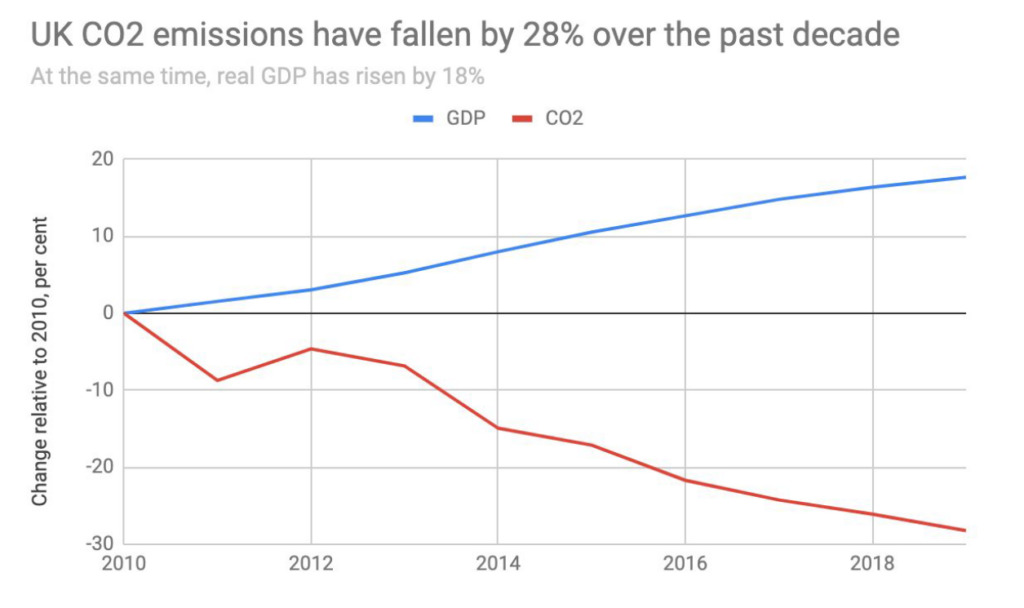New research by Carbon Brief has shown that the UK’s CO2 emissions have fallen by 28% over the past decade.
The biggest contributor to the reduction was improved energy intensity, which helped to bring CO2 emissions down to 354 million tonnes in 2019 while GDP has continued its upwards trend, rising by 18% since 2010.
The second largest contributing factor was cleaner energy sources, in particular given the reduction in coal use and growth in renewables. Coal fell by 28% in 2019, bringing the total reduction to 80% since 2010, which accounts for around three-fifths of the overall reduction in the UK’s CO2 output over the past decade.
This follows an announcement by Carbon Brief in November 2019 that coal power usage around the world was set for a record reduction, with electricity produced by coal set to fall by 3% this year, a saving of around 300TWh.
Meanwhile, emissions from oil and gas fell by just 1% respectively. Over the last decade, emissions from gas are down 20% and those from oil by 6%.
In 2019, emissions fell by 2.9%, marking the seventh consecutive year of reductions, the longest continuous reduction ever. Additionally, this brings the country’s emissions down to the lowest level since 1888.
However, the UK still has the 17th highest CO2 emissions globally, and per capita it remains above average, at 5.3tCO2 in 2019, while the global average was 4.8tCO2 in 2018.
Carbon Brief’s analysis echoes that produced by Imperial College London for Drax Electric Insights last month. It stated that between 2010 and 2019, carbon emissions fell from 161 million metric tonnes to just 54 million metric tonnes in Great Britain.
Similarly, the International Energy Agency found that in 2019 emissions around the world flatlined, and in Europe (including the UK) emissions declined by 160 million tonnes in 2019, a 5% drop that was driven by increases in renewables, as wind power almost caught up with coal generation.





